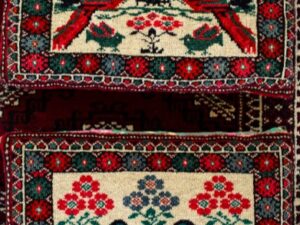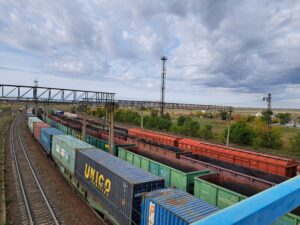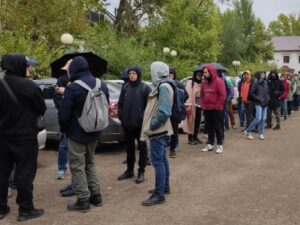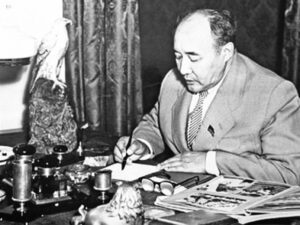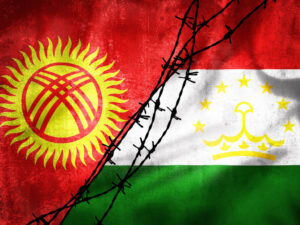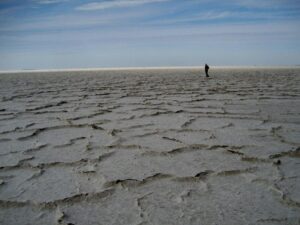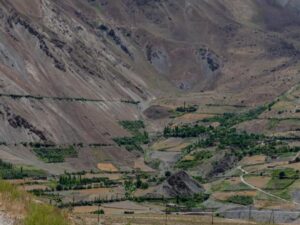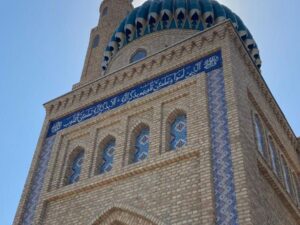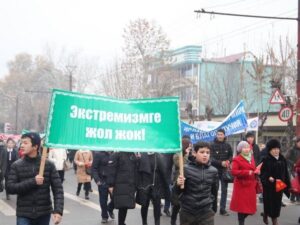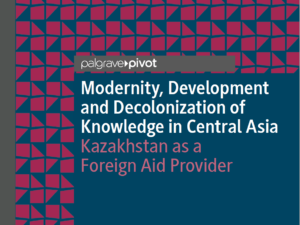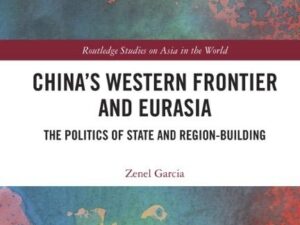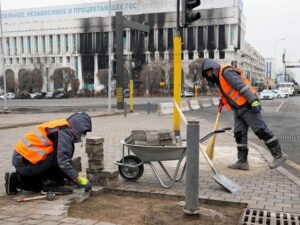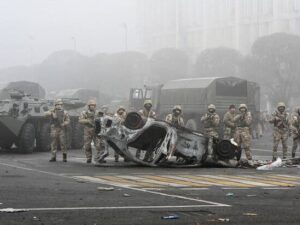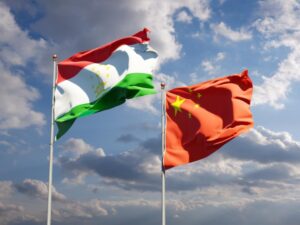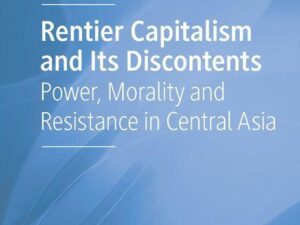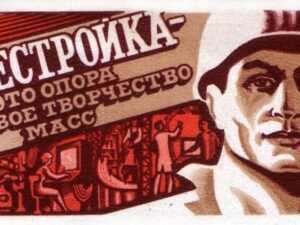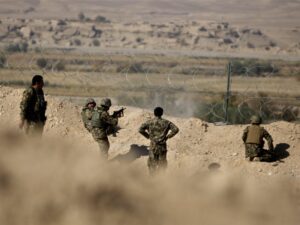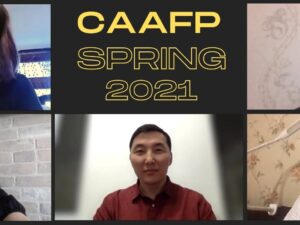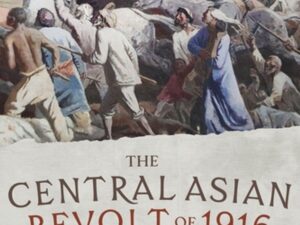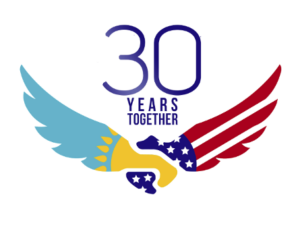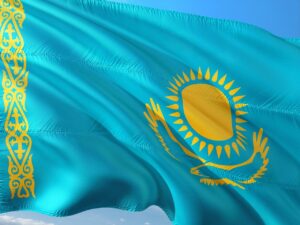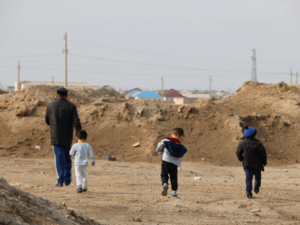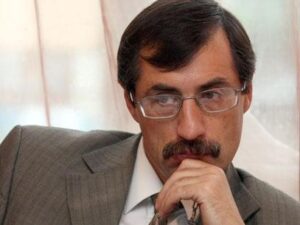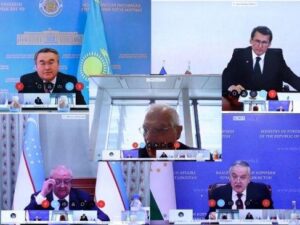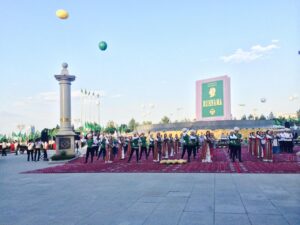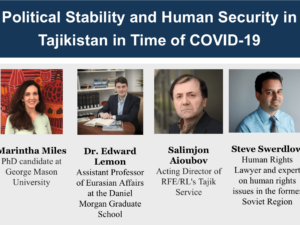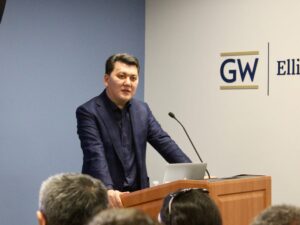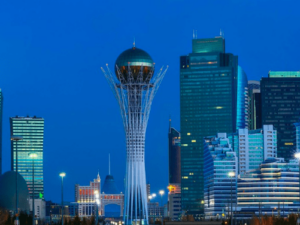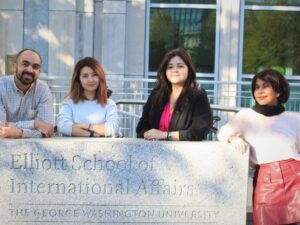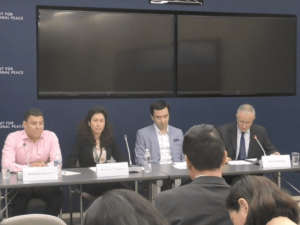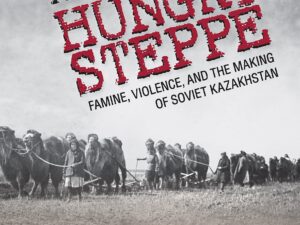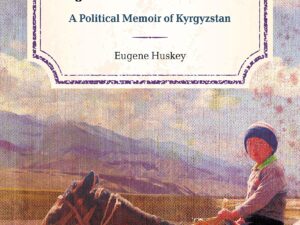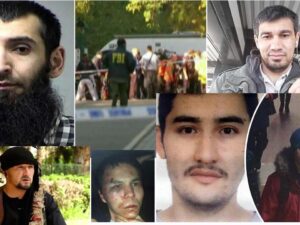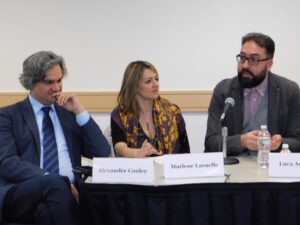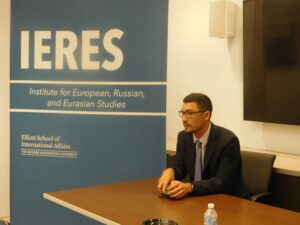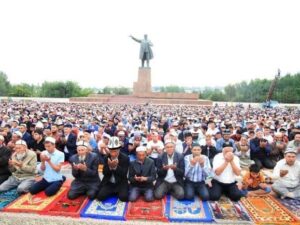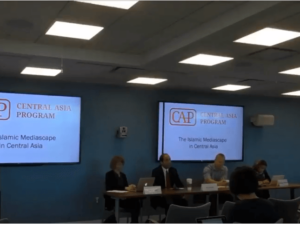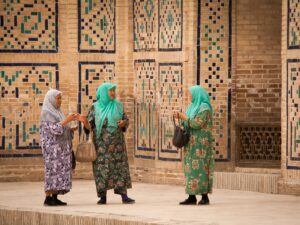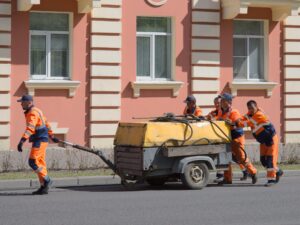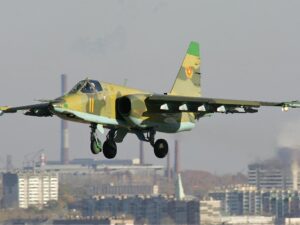
- This event has passed.
Bolashak Fellows Summer Conference July 2023
Hybrid Event
27 July, 2023 @ 9:00 AM – 4:00 PM
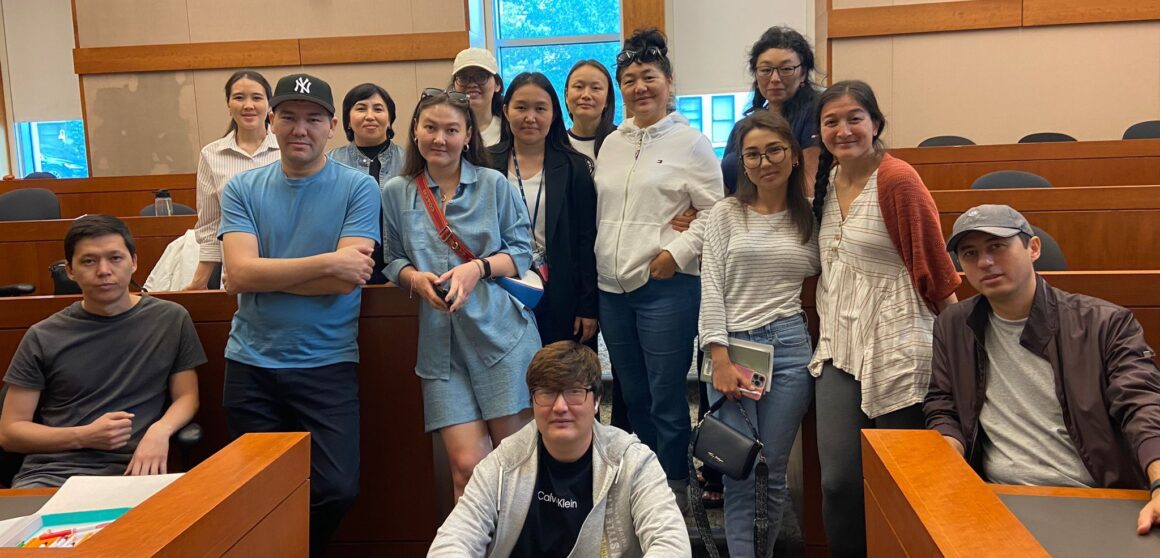
From March to August 2023, the Central Asia Program hosted 18 Bolashak Visiting Fellows from Kazakhstan on a tailor-made training program focusing on teaching science, technology, engineering and mathematics (STEM) to school children. Over the period of their program the fellows gained new skills through and visited outstanding STEM schools in the DMV region observing and exchanging the best practices. With their time at the George Washington University (GWU) coming to an end, please join us for a full day hybrid conference to meet the fellows, learn about their experiences in the United States, and hear their key findings.
CONFERENCE PROGRAM
July 27, 2023
9:00 a.m. – 4 p.m.
9:00–9:30 a.m. Welcome Coffee
9:30–9:45 a.m. Welcome Remarks: Marlene Laruelle, Director of IERES; Ruslan Sakeyev, Representative of the Embassy of the Republic of Kazakhstan, Gulzat Salikova, Managing Director of Social Development Fund, Nazarbayev University
9:45–10:50 a.m. Panel I. Utilizing Project Zero Tools for Effective STEM Education
Speakers:
- Karlygash Jarbulova, Sandugash Kazybekova, Dana Kassymbayeva Group project: Integration of Project Zero strategies and visual thinking routines for promoting the development of metacognitive practices in IB classrooms.
- Ainagul Yermekova, A study of effective practices and approaches of the Project Zero for developing digital literacy in Kazakhstan schools.
- Alima Kurbangaliyeva, Developing students’ skills to analyze the results of an experiment through STEM-based learning with Project Zero strategies in the International Baccalaureate program.
- Ryszhan Zhairbayeva, Using the Project Zero opportunities to study the author’s program on STEM learning.
10:50–11:10 a.m. Break
11:10–12:00 p.m. Panel II. Maximizing the Potential of Innovative Approaches in STEM Education
Speakers:
- Meruyert Shagimoldina, Which type of American STEM-focused schools (selective, inclusive, CTE, adapted STEM schools) is the most effective in the future success of students?
- Nursultan Yembergenov, Teaching alphabet to kids using augmented reality.
- Alibi Skakov, Statistics in school curriculum. The experience of US high school teachers (teacher support material).
- Temirlan Otepov, Finalizing students scores with machine learning tools.
12:00–1:00 p.m. Lunch
1:00–1:50 p.m. Panel III. Nurturing the 21st Century Skills: Integrating New Concepts into the Curriculum
Speakers:
- Bakhadir Rismetov, The benefits and challenges of integrating AI into STEM education in Kazakhstani secondary schools.
- Aizhan Yerzhanova, Development of an elective course “STEM in Action” based on learning objectives of the NIS programme middle school curriculum.
- Yerassyl Tleudin, Developing a project-based STEM curriculum: integrating 3D printing and robotics as elective courses in middle school.
- Makpal Mukanova, Development of an elective course on STEM projects for students in grades 7-9.
1:45–2:05 p.m. Break
2:05–2:55 p.m. Panel IV. Fostering Student Engagement: Effective Strategies for Active Learning in STEM Education
Speakers:
- Marzhan Mergenbayeva, Improving soft skills among Kazakh students based on American schools experiences.
- Arailym Tuktybayeva, Using flipped classroom models in mathematics class.
- Moldir Akhmetbekova, The positive effects of the Early College Program on US high school student experiences.
- Nurzhigit Botabekov, The impact of project-based learning on student engagement and achievement in STEM subjects.
2:55–3:10 p.m. Break
3:10–4:00 p.m. Certificates Awarding Ceremony and a Photo Session



